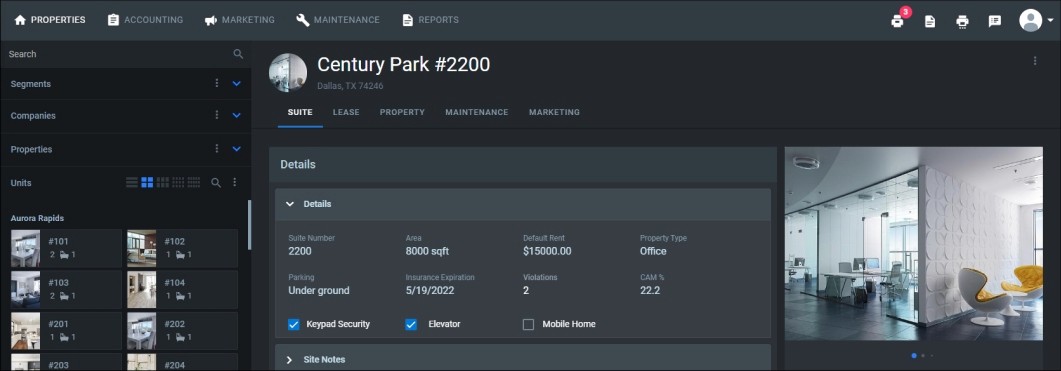Blog
Document and Record Management Strategies for Rental Property Owners
Dec 20, 2023
Document and record management is essential for any organization to ensure the efficient and secure storage and retrieval of important information. It involves the systematic organization, categorization, and storage of documents and records, making them easily accessible for authorized personnel. Effective document and record management can significantly streamline business operations, enhance productivity, and support decision-making processes.
The importance of efficient organization and management of documents and records cannot be overstated for rental property owners. With a large number of tenants, maintenance requests, lease agreements, and financial transactions to keep track of, having a robust document and record management strategy is crucial. Implementing a digital system to store and categorize all relevant documents and records is one simple way that property managers and owners can simplify the process.
Document and record management strategies for rental property owners can include implementing digital storage solutions, creating standardized filing practices, and regularly backing up digital files. Having a well-maintained document and record management system can enhance the overall professionalism and credibility of the rental property business.
Identify Types of Documents and Records to Manage
There are a number of documents and records that every property management business can expect. Lease agreements and rental applications are essential documents that should be carefully managed. These documents outline the terms and conditions of the rental agreement and provide important information about the tenants.
Maintenance records, including repair requests, contractor agreements, and inspection reports, are also crucial for property owners to manage effectively. It is essential for property managers to keep track of their insurance policies and certificates. Any legal documents related to the property, such as permits and licenses, should also be carefully managed.
Financial records such as rent receipts, invoices, and expense reports should be properly organized and maintained. These documents are important for tracking income and expenses, ensuring accurate record-keeping, and facilitating tax preparation. By effectively managing and organizing these various documents and records, rental property owners can ensure smooth operations, better tenant relationships, and efficient decision-making.
Organizing Files
Storing documents is of little use if you are not able to retrieve them when needed. Creating a structured folder system for documents can greatly improve efficiency when it comes to retrieving important files. Using subfolders within your main folder system can further enhance organization.
Categorizing files based on their types, dates, or specific tenants can make it easier to locate specific documents quickly. Implementing efficient naming conventions for easy retrieval of documents is another important step in organizing files. An effective organizational system allows rental property owners to save time, reduce stress, and ensure that important documents are always within reach.
Storing Documents and Records
Paper documents can be stored in filing cabinets and organized alphabetically, by date, or by category. There are limitations to this system, and it can take substantial storage space to implement it. Digital documents can be stored on a computer's hard drive or on cloud storage platforms.
Digital storage solutions, such as software systems, can improve efficiency and streamline the organization and retrieval of your files. Property management software can provide a secure platform for storing important documents and records. These solutions offer the advantage of being able to access files from anywhere, at any time, making it convenient for property owners who may need to retrieve documents on the go.
Utilizing automation tools for document creation and organization can further streamline the file management process. By setting up templates and workflows, property managers can quickly generate documents such as leases or maintenance requests, saving time and reducing the risk of errors. These tools can also automatically categorize and organize files based on predefined criteria, making it easier to locate specific documents when needed.
Document Retention and Disposal Policies
It's important to develop a clear policy for disposing of outdated and irrelevant documents. Regularly reviewing and purging unnecessary documents helps to maintain a more efficient and organized file system. Property owners should establish guidelines on how long certain types of documents should be retained and when they can be safely disposed of.
Physical documents should be shredded on site. There are shredding companies available that can come to your place of business and perform document destruction services in a secure manner. Electronic documents can be erased from the system with the click of a button.
Regularly purging outdated documents allows property owners to ensure compliance with legal requirements and protect sensitive information from falling into the wrong hands. Make sure that you understand the legal requirements and obligations for document retention and ensure compliance with data protection and privacy laws when disposing of sensitive records. Implementing document retention and disposal policies can greatly contribute to the overall effectiveness of the file management process.
Security Measures for Protecting Documents and Records
Securing physical documents in locked cabinets or safes is an important security measure to prevent unauthorized access. Limit access to sensitive information to authorized personnel only. It is crucial to regularly train employees on best practices for document security and enforce strict adherence to these policies to ensure the ongoing protection of valuable and confidential information.
Enforce strict password protection for electronic documents. Encrypting sensitive electronic documents can further enhance document security. By adopting these security measures, property owners can minimize the risk of information breaches and ensure the integrity and confidentiality of their documents and records.
Digital storage solutions often include backup and data recovery features. This helps to ensure that important information is protected in case of any unforeseen events, such as data loss or system failure. Regularly backing up important files can also protect against data loss in the event of a physical disaster or cybersecurity breach.
Effective document and record management strategies not only protect against potential data breaches but also streamline operations and improve overall efficiency. Take action and start organizing your documents and records with Property Matrix.




